Since Crown Prince Mohamed bin Salman (MBS) ascended to power in 2015, Saudi Arabia has seen a widescale crackdown on freedom of expression, targeting the human rights community as well as a wide range of individuals who have expressed any form of dissent or criticism of the government. As of mid-2021, nearly all human rights defenders, women’s rights activists, independent journalists, writers and activists in the country had been arbitrarily detained, put through prolonged and unfair trials – most often by the Specialized Criminal Court (SCC) – or released but under conditions that include travel bans and other arbitrary restrictions to their fundamental rights, such as to conduct peaceful activism. Furthermore, the brutal murder of Saudi journalist Jamal Khashoggi at the Saudi Arabian consulate in Istanbul in October 2018, alongside state-sponsored digital surveillance and cyber targeting of activists abroad, further shrank the civic space in the country and fermented a climate of fear and oppression.

The Saudi Arabian authorities’ arbitrary use of travel bans against activists and human rights defenders reflects a bleak reality in the country, where dissenting voices continue to be ruthlessly silenced while leaders speak of progressive reform,”
Lynn Maalouf, Amnesty International’s Deputy Director for the Middle East and North Africa.
Human rights defenders have been convicted and given harsh sentences – sometimes receiving up to 30 years’ imprisonment– following prolonged, unfair trials. When they eventually are released (either after completion of their sentences or following an early release decision), such releases include conditions that effectively perpetuate violations of their rights once they are no longer behind prison bars. These conditions include bans on public speaking and bans on travel, violating their basic rights to freedom of expression, association and peaceful assembly in the country, and their freedom of movement outside of the country.
Travel bans are official orders – usually issued by a court or police order – that prevent a particular citizen or group of citizens from entering or leaving the country, the official purpose being that they are used when necessary, in cases that involve financial crimes, custody, or criminal investigations. The organization also has documented the use of travel bans that are not issued by either a court or police order and in which cases impacted individuals were not aware of the bans until they were attempting to travel. Such “unofficial” travel bans have targeted mainly the relatives in Saudi Arabia of peaceful activists, in what is clearly retaliation against their relatives’ activism.
These bans – both judicial and non-judicial – are simply another facet of the pattern of repression, a tactic used by the authorities to suppress independent, critical voices inside and outside the country.
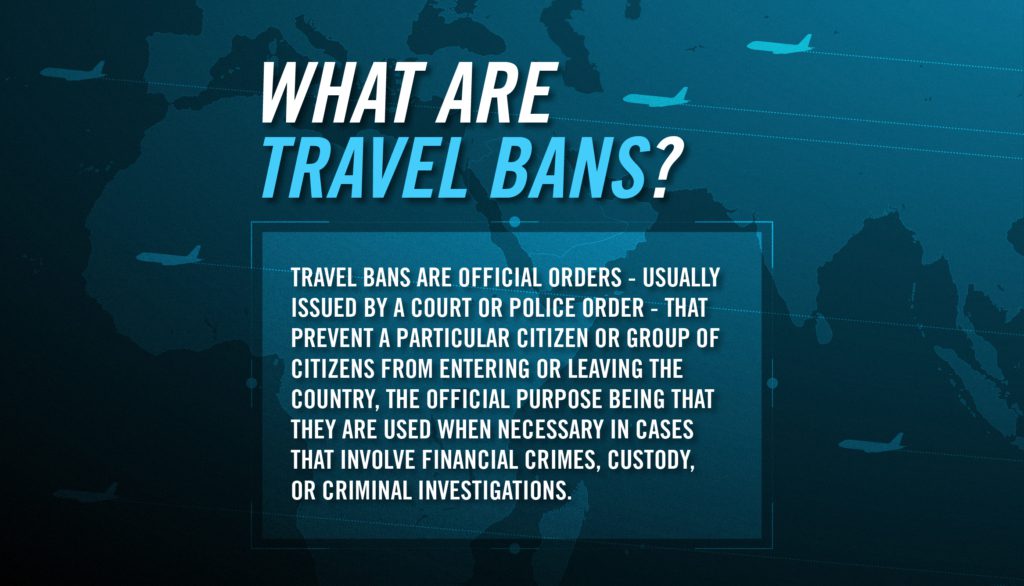
How do Travel Bans Impact Lives?
Throughout the course of its ongoing monitoring and documentation, Amnesty International documented 30 cases of Saudi Arabian activists and human rights defenders who were prosecuted and sentenced to prison terms to be followed by travel bans; as well as 39 unofficial travel bans which have affected relatives of activists.
According to, journalistic reports, Saudi authorities also imposed travel bans on approximately 300 individuals involved in the Ritz Carlton purge of November 2017 including members of the Saudi royal family, including at least 85 children, grandchildren and great-grandchildren of the late King Abdullah bin Abdulaziz al-Saud. In October 2021, The Freedom Initiative issued a report documenting at least 89 “U.S. persons” (American citizen or legal permanent resident) detained or on a travel ban in Saudi Arabia.
Travel bans have significant consequences on the lives of impacted individuals, causing them to lose educational or professional opportunities abroad, restricting their ability to seek healthcare outside the Kingdom, affecting their mental health and forcibly separating family members for years. Furthermore, this climate of fear and repression has a chilling effect on Saudi activists living abroad or exiled, as they avoid returning to their own country in fear of reprisal or being placed on arbitrary travel bans that would lock them in the Kingdom and prevent them from traveling back to their countries of residence, not to mention the fear of seeing members of their family inside the country being targeted in retaliation for their activism abroad.
Several activists told Amnesty International that they struggle mentally and emotionally as they are forcibly torn away from their families and home country by the fear of being subjected to travel bans if they return, or even arbitrarily arrested and detained.
In conclusion, unlawful and arbitrary travel bans constitute violations of human rights enshrined in local and international laws.
Amnesty International urges Saudi Arabian authorities to immediately lift all travel bans imposed on activists and human rights defenders and all other conditions judicially imposed solely because of their peaceful work, as well as unofficial bans extrajudicially and arbitrarily imposed on their relatives and family members as form of reprisal. Saudi authorities must end the punitive and vindictive use of travel bans, and fully respect the rights to freedom of expression and movement.
Know Their Names
Building on Amnesty International’s ongoing documentation and monitoring of individuals prosecuted in relation to their right to free speech, the organization has documented the cases of 30 individuals who are currently under travel bans imposed as part of court sentences, and of 39 individuals under unofficial travel bans simply for being relatives of prosecuted activists. Between November and December 2021, Amnesty International spoke with eight of these individuals, to gain a better understanding of the impact these decisions have on their day-to-day lives.
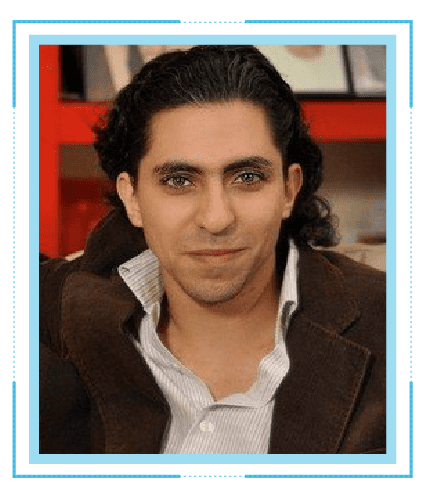
Raif Badawi
Raif Badawi was detained on 17 June 2012 and sentenced in 2014 to 10 years in prison, followed by a 10-year travel ban and a 1 million Saudi Arabian riyal (about USD 267,000) fine for creating an online forum for public debate and accusations that he insulted Islam. He was also sentenced to a cruel and inhuman punishment of 1,000 lashes, the first 50 of which were meted out in a public square in Jeddah on 9 January 2015.
Raif Badawi was released from prison on 11 March 2022, after several extra days beyond his prison time. He remains on a 10-year travel ban as of his release date, unable to reunite with his family in Canada. Raif Badawi might not see his wife and kids for the coming 10 years, unless his travel ban is lifted.
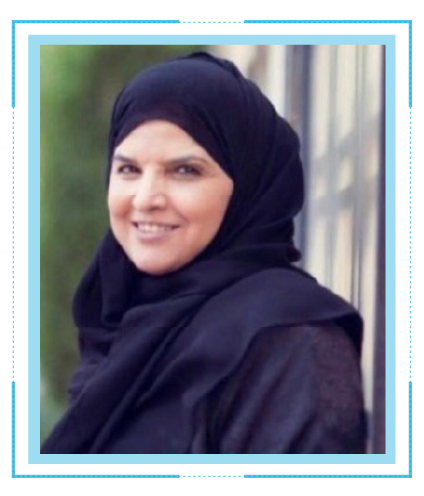
Aziza Al-Youssef
A prominent woman human rights defender who was detained in May 2018 and provisionally released in March 2019. She is subjected to a five-year travel ban. Her son, Salah al-Haidar, a journalist and writer, was also detained in 2019 and conditionally released in February 2021 on a two-year travel ban.
Read the testimony below by Aziza al-Yousef’s daughter and Salah al-Haidar’s sister, Sara al-Haidar.

Salman al-Odah
A prominent reformist cleric detained since September 2017 and at risk of death sentence. His entire family in Saudi Arabia are on an unofficial travel ban, a total of 19 individuals. His son, Abdullah al-Odah and his wife are based in the US, unable to return to the Kingdom for fear of prosecution. The couple has been subjected to indirect threats and attempts to lure them back to Saudi Arabia, but they both managed to dodge the attempts.
Read the testimony below by Sheikh Salman al-Odah’s son, Dr. Abdullah al-Odah.
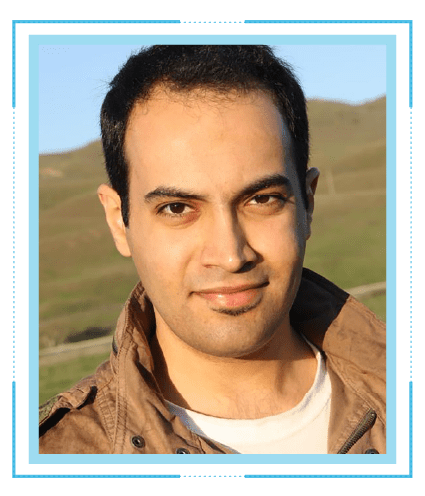
Abdulrahman al-Sadhan
A Red Crescent worker who was arrested and detained incommunicado, and forcibly disappeared for two years from his arrest on 12 March 2018 until he was allowed to call his family for the first time on 12 February 2020. He was sentenced on 5 April 2020 to 20 years in prison to be followed by a 20-year travel ban, on charges relating to the peaceful exercise of his right to freedom of expression
Read the testimony below by Abdulrahman al-Sadhan’s sister, Areej al-Sadhan.

Ali Hashem
A former businessman and political activist currently living in Lebanon after fleeing Saudi Arabia in 2016 for fear of prosecution for his political views. His mother, father, wife and five children are based in Saudi Arabia and are subjected to an unofficial travel ban. He hasn’t seen them since 2018.
Read Ali Hashem’s testimony below.
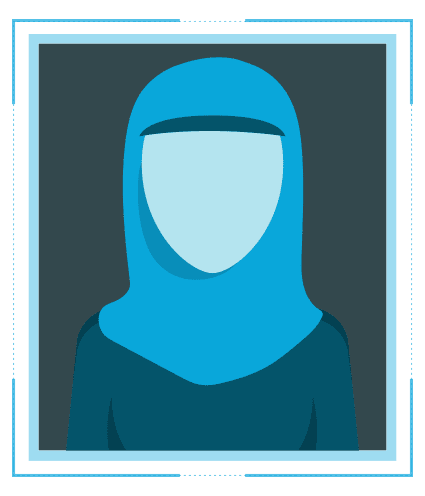
Umm Naser [pseudonym]
Widow of a Saudi Arabian Eastern Province activist who was executed by Saudi Arabian authorities. She is based inside Saudi Arabia and is subjected to an unofficial travel ban along with all her children.
Read Um Nasser’s testimony below.

Loujain Al Hathloul
A prominent woman human rights defender who was sentenced by the Specialized Criminal Court in December 2020 to a prison term of five years and eight months following a grossly unfair trial. She has reported having endured torture, sexual harassment and death threats in prison. Following increased international pressure, in December 2020, the Criminal Court in Riyadh announced it would open an investigation led by the Public Prosecution into Loujain al-Hathloul’s claim that she was tortured in detention, but at the session held on 22 December 2020, the judge closed the so-called investigation, denied that any torture had taken place, and refused to provide Loujain al-Hathloul with a copy of the decision. Loujain al-Hathloul has appealed this decision before the Supreme Court. She was conditionally released in February 2021, but continues to be on probation for two years and 10 months, partially suspended from her sentence, and faces a five-year travel ban. In addition, Loujain al-Hathloul’s mother and father have been subjected to an unofficial, unjustified, and open-ended travel ban since 2018
Read the testimony below by Loujain al-Hathloul’s sister, Lina al-Hathloul.

Fahed [Pseudonym]
A journalist who was sentenced in 2016 to five years in prison followed by a travel ban of eight years. He was released in 2021 but remains on a travel ban, unable to reunite with his wife and children who are based abroad.
Read the testimony below by Fahed’s wife, Salam.
Read the testimonies:
TELL SAUDI AUTHORITIES TO LIFT THESE UNFAIR TRAVEL BANS AND ALLOW FAMILIES TO REUNITE
TAKE ACTION

Why Are These Travel Bans Illegal?
Arbitrary travel bans on Saudi citizens are contrary to international human rights law and Saudi Arabia’s domestic law, both of which protect the right of Saudi citizens to leave and enter their own country, blatantly violate the rights to freedom of movement and association and stifle the right to freedom of expression.
The Universal Declaration of Human Rights states that everyone has the right to freedom of movement and residence within the borders of each state, and the right to leave any country, including their own, and to return to it (Article 13). Similarly, the Arab Charter on Human Rights which Saudi Arabia has ratified, stipulates that every person legally residing in party countries enjoys the freedom to move and choose their residence (Article 26). The Saudi Arabian Travel Document Law itself further guarantees the right to freedom of movement in Article 6, stating that “no person may be barred from traveling except by a judicial ruling or a decision issued by the Minister of Interior or the President of State Security, as the case may be, for specific reasons relating to security and for a specific period of time. In both cases, the person barred from traveling shall be notified within a period not exceeding one week from the date of issuance of said ruling or decision.”
According to Amnesty International’s documentation however, the Saudi authorities have been imposing travel bans on citizens without any judicial orders or official decisions and have failed to notify the affected persons within the legal timeframe, if at all.
In all 39 cases of unofficial travel bans, individuals weren’t notified by authorities, and only found out that they were subject to travel bans at border control at airports or border crossings while attempting to leave the country. Affected individuals told Amnesty International that Saudi border authorities provided no reason for stopping them from boarding a flight and have refused to provide any formal documentation justifying the decision. In addition, when inquiring about the duration of their travel bans, these individuals were not told when or if the ban would be lifted. And in the case of official bans, the real reason has nothing to do with security, but rather as punishment for individuals’ peaceful exercise of human rights and is therefore unlawful.
States are only allowed to impose restrictions on the right to freedom of movement, including the right to leave and enter one’s own country, in exceptional circumstances. Any such restrictions must be provided by law and necessary and proportionate to protect national security, public order, public health or the rights and freedoms of others, and they must be consistent with all other human rights (including the right to freedom of expression).However, the cases documented by Amnesty International illustrate how Saudi authorities instrumentalize travel bans as a repressive tool to punish, intimidate, control and silence peaceful human rights defenders and their relatives as part of a range of other tactics used to silence dissent. The official travel bans in these cases do not satisfy the requirements that they be necessary to protect a legitimate interest (national security, etc.) and that they be consistent with all other human rights. The unofficial bans also fail the requirement that they be provided by law.

What is Amnesty calling for?
Politically motivated travel bans are yet another tactic being used by the Saudi Arabian authorities to stifle the human rights and activist community inside the Kingdom and abroad. The cases documented by Amnesty International are not isolated cases. Travel bans have been repeatedly and systematically used by Saudi authorities to intimidate and silence independent and critical voices and repress peaceful activism and are growing to become a pattern or a standard practice in the country.
Saudi Arabian authorities must stop abusing the justice system as a tool to persecute human rights defenders for their legitimate work, starting by ending their campaign against all those detained, sentenced, on trial or awaiting charges solely for exercising their right to express themselves freely or conduct peaceful activism, and immediately lifting all travel bans imposed on peaceful activists and/or their family members, along with removing all other conditions imposed as part of these activists’ sentences.
Amnesty International urges Saudi Arabian authorities, namely King Salman bin Abdulaziz Al Saud, Crown Prince Mohamed bin Salman, the Presidency of State Security, the Ministry of Justice and the Ministry of Interior to:
Ensure the immediate & unconditional release all activists and human rights defenders detained solely for peacefully exercising their rights to freedom of expression & other human rights;
Lift arbitrary and unlawful travel bans imposed on
relatives and family members of activists, and fully
respect their rights to freedom of movement, expression, peaceful assembly and association;
End the practice of imposing arbitrary travel bans for the purpose
of punishing, intimidating and silencing activists, human rights defenders and their family members;
Uphold and abide by the Saudi Travel document Law issued in 2000, by ensuring that any travel bans are imposed according to law, by a well-justified judicial ruling or a decision issued by the Minister of Interior or the President of State Security, for specific reasons relating to security and for a specific period of time,
in addition to notifying the affected person within a period not exceeding one week from the date of issuance of said ruling or decision.

